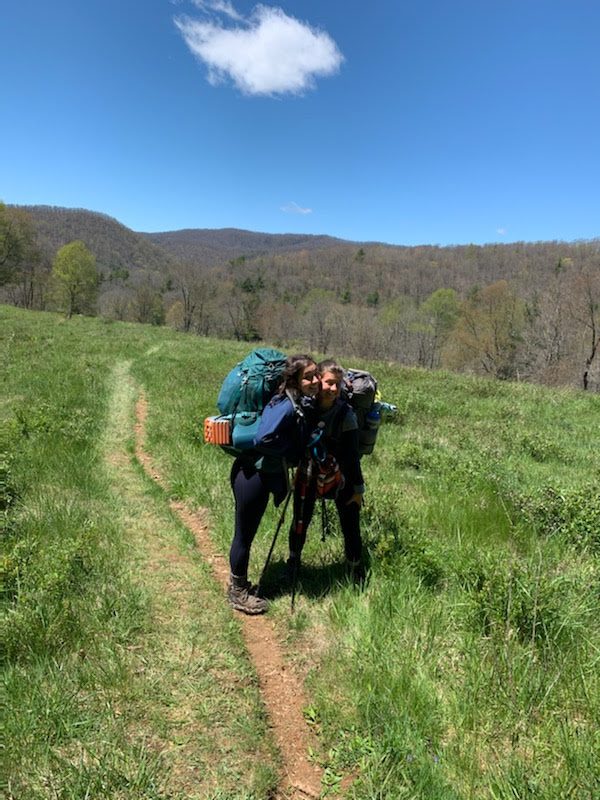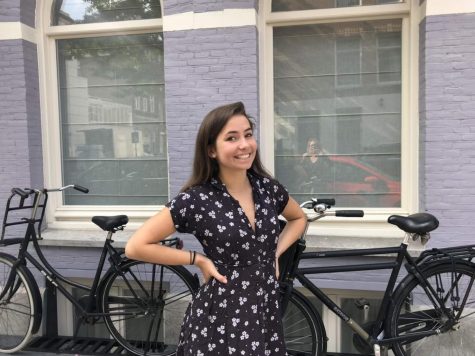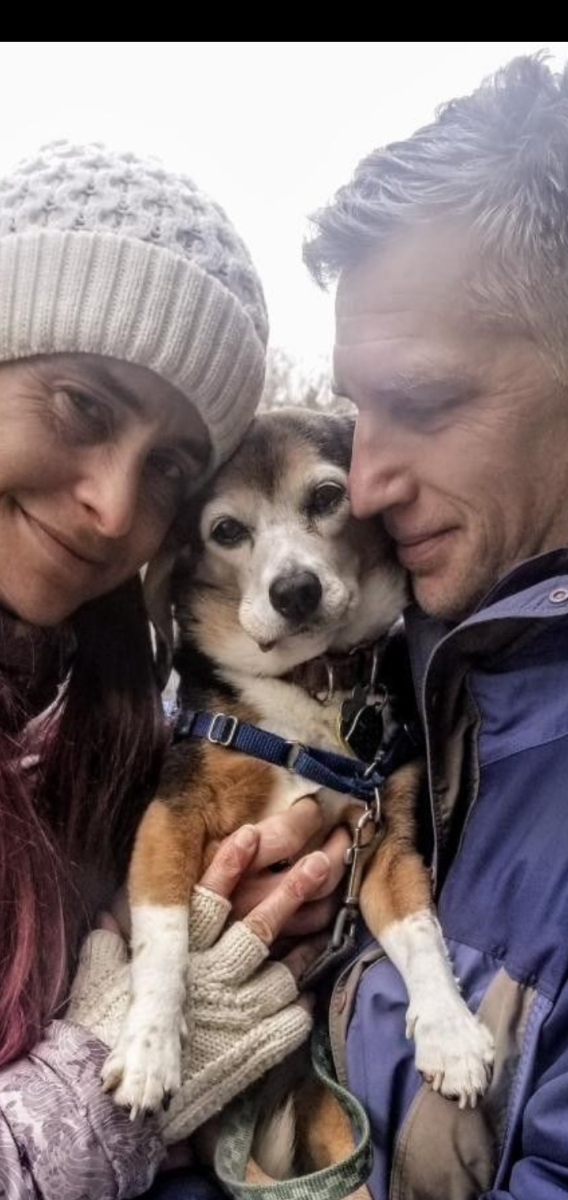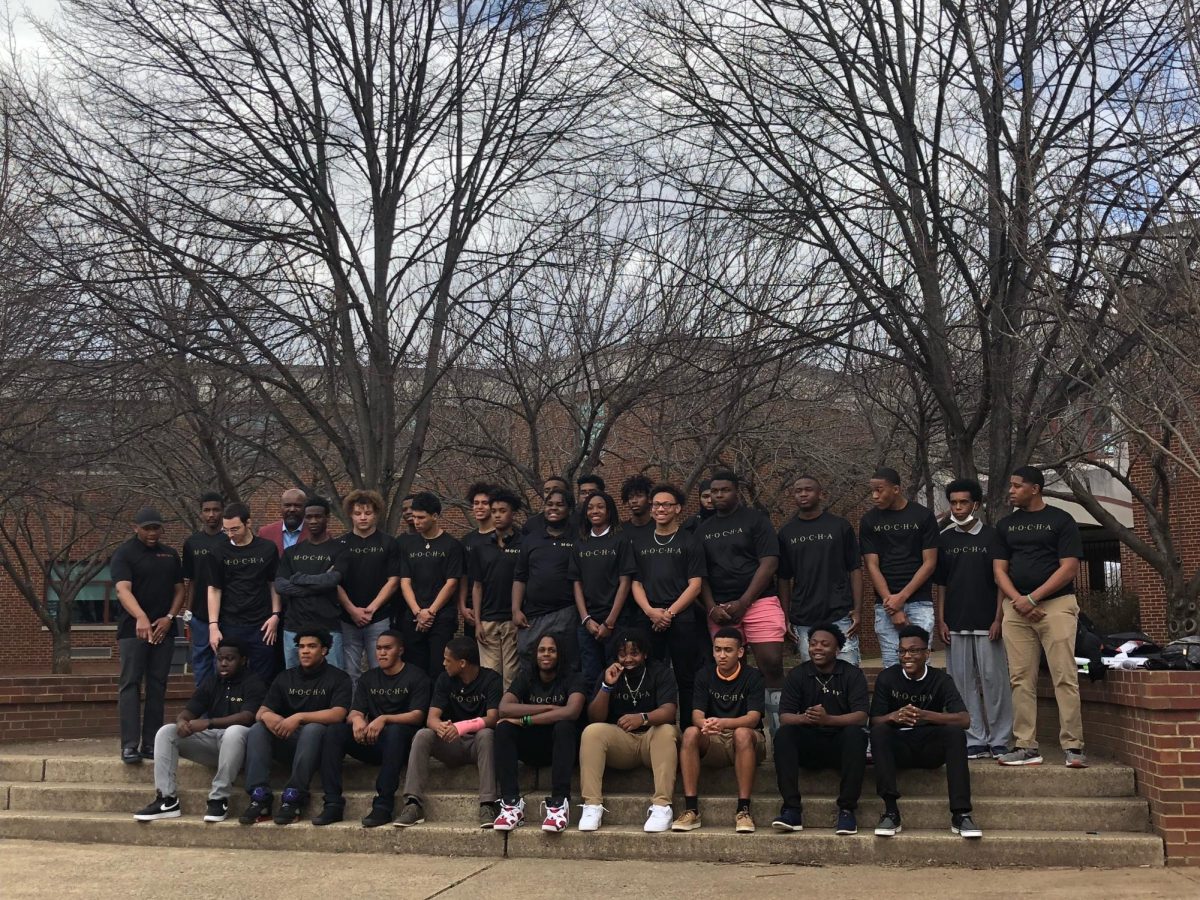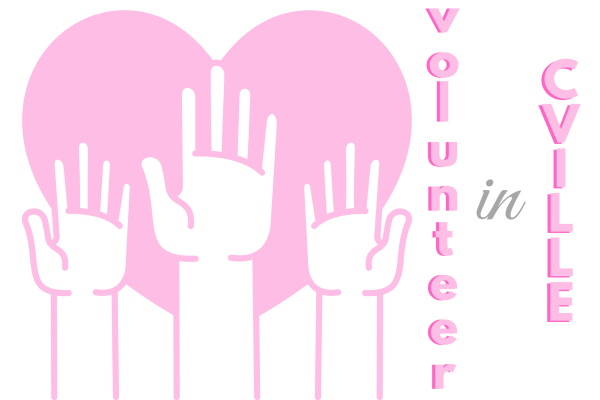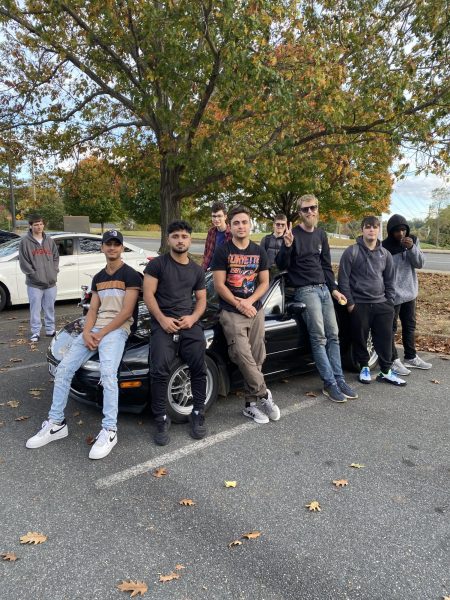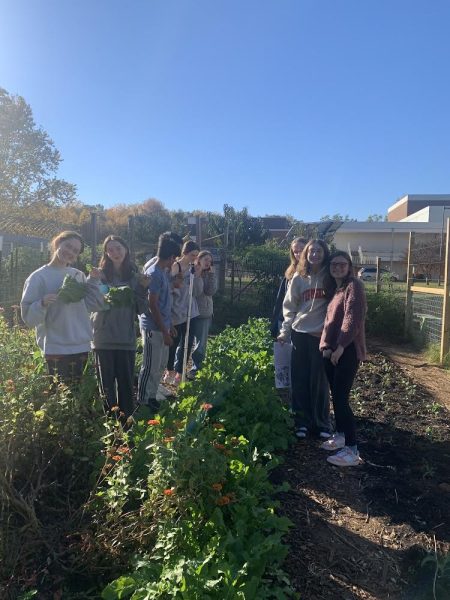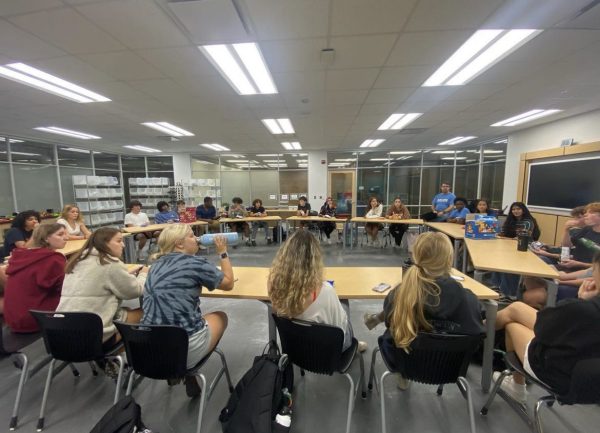Is Nature Really Our Safe Space Right Now?
My sister, Annika, and me in southern Virginia on the Appalachian Trail
April 4, 2020
During a time in which we are forced to limit interaction with people and places which we usually frequent, many have turned to the outdoors and nature as somewhere to exist peacefully and without harm to themselves and others during this pandemic. However, as everyone has been forced to give up aspects of their life in this trying time, some have had to give up their personal access to the outdoors. My sister, Annika Antholis, a 2019 Charlottesville High School graduate, who completed high school in three years to thru-hike the Appalachian Trail, had to pause her adventure due to the Coronavirus.
The Appalachian Trail is 2,200 miles of continuous hiking trails along the East Coast from Georgia to Maine. My sister made the decision to hike the entirety of it when she was a sophomore in high school, and had been planning to complete it from February to August of this year. Her hiking partner, Davida Rimm-Kaufman, also a C.H.S. graduate, has had this same goal in mind since elementary school. I asked Davida how she would describe thru-hiking. She replies passionately “It’s basically a four-to-six month journey where you walk across the U.S., make friends, and push your body through limits you wouldn’t expect to be able to do.”
When Virginia schools first began to close in response to the Coronavirus, I remember my parents calling my sister as she passed through the state line into Tennessee. They told her that they were relieved that she was hiking right now, and not in Charlottesville or at college like many of her peers. Like many others, they believed that the space and isolation that nature provides would keep her safe from getting the Coronavirus, and that the towns she was passing through did not pose a threat since they lacked cases of the virus at the time.
However, while many would think that escaping to live in the woods for a few weeks seems like a perfect relief from quarantine, it was not that simple for Annika and Davida. The Appalachian Trail is known in the United States as one of the most supported trails by the hiking community. The AT has more access to towns than any other continuous trail in the United States, which allows for hikers to stop frequently to resupply on food, and spend a night or two in a hostel to shower and sleep in a real bed. There is a large community that maintains the Appalachian Trail and supports thru-hikers by providing transportation and hospitality to hikers in towns. Another large aspect of hiking the Trail is creating a “trail family,” which is a fellow group of hikers who you travel and camp with. Thru-hiking is not as solitary of an activity as many believe, which meant that Annika and Davida were not completely safe from Coronavirus while hiking.
“It’s kind of weird because you think that you’re protected if you’re out in nature, and a lot of people are turning to hiking as something to do right now. So we thought ‘Oh, this doesn’t affect us. Our thing is the one thing that is safe from Corona,’” Annika tells me. “But, it turns out that since so many people use the A.T., it’s also a danger.”
This virus has progressed exponentially and changed the game in only a matter of days. So only two weeks after my parents encouraged Annika to stay on trail, Virginia declared a state of emergency, which Annika and Davida had previously decided would be their sign to get off trail. On the same day, the Appalachian Trail Conservancy issued a warning for all hikers to get off of the Trail, and that those who hiked during this time would not have their thru-hike verified. Many state parks and road heads began to be closed, hostels in towns began to shut their doors, and communities stopped offering their support to thru-hikers. While about 1,000 hikers were planned to complete the trail this year, a recent high, many chose to get off, leaving only about 200 left. Annika and Davida painfully realized they couldn’t continue with their hike and got off trail in Southern Virginia at the 500 mile mark.
While Annika and Davida had known that getting off trail was a possibility, they were devastated to actually be forced to leave. They both loved the freedom of being on trail, and were on track to complete their hike in time for their plans in the fall. “Imagine that you fall in love with someone, and you have a vision that you’ll get to be with them for the next five months, and then you have to choose to take it away,” Davida painfully describes having to get off trail. “But this was worse than getting my heart broken.” “And it’s not like we get to come home to our normal lives,” Annika says. “We came home to freaking Coronavirus.”
Annika and Davida, as well as our parents, had many reasons for deciding to get off trail during the Coronavirus. First and foremost, they did not feel they were above the Governor’s law, nor the Appalachian Trail Conservancy. They also realized that as they were travelling from town to town and interacting with people from other areas, they could easily get the Coronavirus and be a vector that brings it to these towns, which don’t have health systems to support such a fast-spreading virus. Additionally, if they themselves get injured while on trail near a town that does already have cases of the virus, they could either be taking a bed from a patient with Coronavirus, or be denied help. It was also much more difficult to hike as trail towns began to close, making it harder to resupply on food and rest in a town.
“We didn’t fully know the extent of the virus on trail, but we knew that we had to try to minimize our risk until it was actually illegal for us to be out there. Ultimately, we were too much of a risk, because towns are really important to a thru-hike and you can’t really social distance no matter how hard you try,” Davida says.
For the past month and a half, the prominent battle in my house has been “When can Annika and Davida get back on trail?” Their window for being able to complete their thru-hike is slowly closing, as Annika is going to the University of Virginia in the fall. Their trail family continued to hike during this time because many couldn’t go back to their homes such as New York City and Atlanta, which made Annika and Davida’s decision much harder. Their trail family has continued to stay in towns, although less frequently. Some had to night-hike through the Shenandoah National Park due to its closure. Like almost everything else in our world right now, the trail isn’t the same.
I joined Annika and Davida for about five days on the trail for a short section-hike as they tried to cover another 100 miles in Virginia. I had never completely understood why my sister had decided to take on this adventure, but the freedom of having everything I needed on my back and being able to enjoy nature all day, every day, with nothing else to do but walk to where I was sleeping at night quickly appealed to me. However, even without having experienced what a regular thru-hike is like, I could quickly identify the difference and why hiking during Coronavirus is simply an inferior experience. If I didn’t know that I would be able to take a shower, rest my aching calves, and sleep in a real bed in five days, it would have been much more exhausting. I could also notice the loneliness of so many less people on the trail, and having to social-distance at campsites at night when there were fellow hikers.
Annika and Davida are hoping to return to the trail in the next few weeks to rejoin their trail family. They made this decision as the curve of Covid cases in states that the rest of their hiking group are passing through declines, and as the curve in Virginia begins to fall. Annika and Davida have also decided to skip the section of the Trail which passes through Virginia so that they can reach Maine with their trail family, and complete Virginia later in the summer. While they know that the Trail will not be the same without easy access to towns and the lack of other hikers, they are determined to return to their happy place on the trail as safely as possible.


